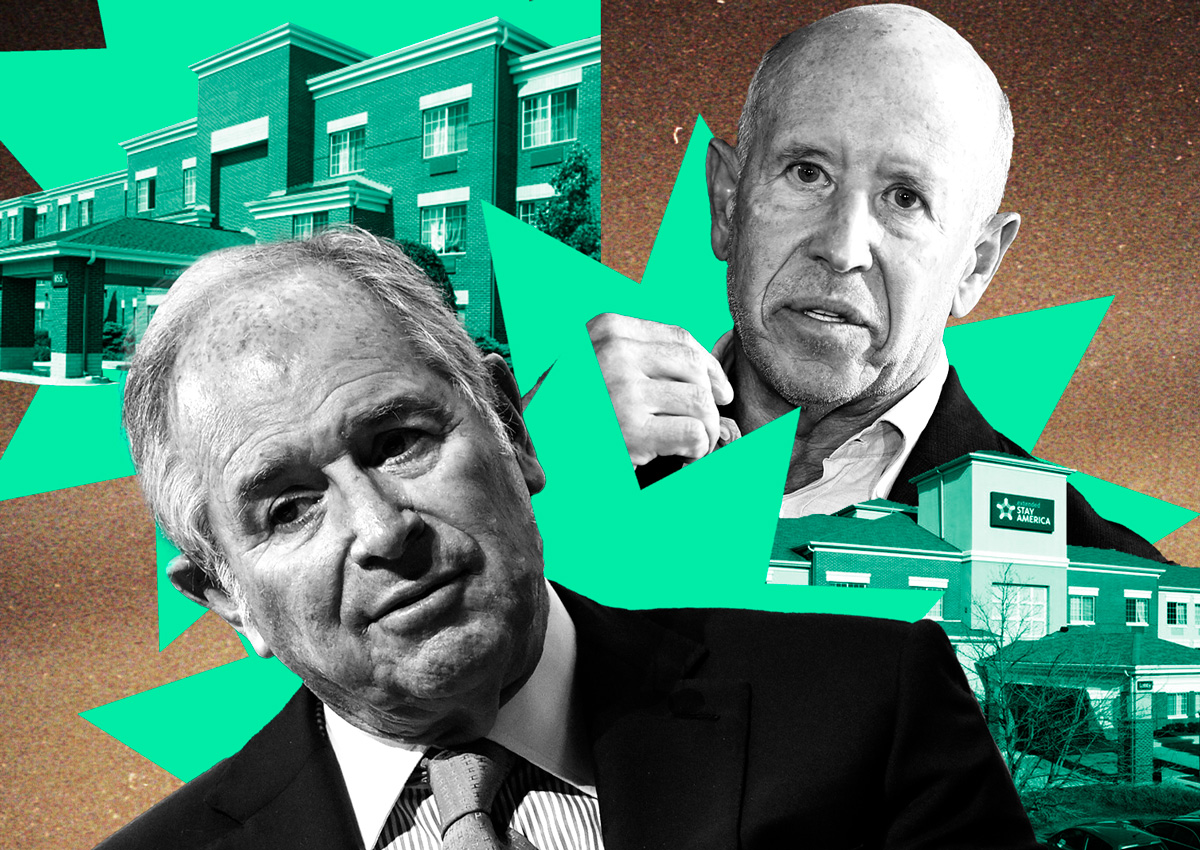In suburban Chicago, where a number of office landlords have seen their loans become delinquent or watchlisted, some hotel owners are also feeling the crunch.
“In markets where you’re seeing the biggest dropoff in business and the most distress is markets that are heavily reliant on commercial and business travel,” Alan Reay, the president of hotel brokerage Atlas Hospitality Group, told The Real Deal. “We’re definitely seeing some impact in the hotel sector.”
And lenders are keeping a close eye on large portfolios, as well as individual assets. The pressure is clearly on for borrowers to ramp up performance.
A joint venture between Blackstone Real Estate Partners and Starwood Capital Group exercised its right to a one-year extension on a $4.7 billion floating rate loan that was scheduled to mature July 9 secured by a national portfolio of 560 limited-service hotels including more than 20 in the Chicago area. Special servicer KeyBank watchlisted the loan in May, according to a report to DBRS Morningstar.
“We recently exercised our contractual right to a one-year extension option, and have the right to additional extension options that extend the loan through July 2026”, a representative for Blackstone told The Real Deal.
The portfolio includes multiple properties near office complexes in the Interstate 80 corridor that are dealing with high vacancies and watchlisted loans, including Extended Stay America locations in Westmont and Lombard.
A loan secured by a large portfolio that includes four Chicago-area hotels in Gurnee, Lincolnshire, Highland Park and Oakbrook Terrace owned by Clarion Partners was watchlisted by special servicer Midland Loan Services in the spring after its debt yield, a measure of the potential return on investment for the $684 million loan, fell below the threshold set by the lender.
In Lombard, an $8 million loan on a 125-key TownePlace Suites owned by a venture led by Mokena developer Michael Rose has been on Midland’s watchlist since 2020. The loan is being monitored because of a drop in debt service coverage ratio, a measure of the owner’s cash flow to pay debt obligations, according to a Morningstar report.
A silver lining perhaps is that Chicagoland’s tourism industry is recovering from the pandemic, with west suburban DuPage County posting its highest hotel occupancy numbers since 2017 in May. Statewide, hotel occupancy numbers were up by about 21 percent in 2022, but still fell 7 percent below 2019’s levels, according to a report from Tourism Economics.
Still, the tourism rebound raises questions about whether hotel owners can stay current on debt, especially those who may be impacted by high interest rates.
“Anyone out there with a variable rate loan or has a loan that’s maturing in the next 12 to 24 months is really in a hard place,” Reay said, adding that those assets face a “double whammy” of higher rates and operating expenses.
Some hotels, however, have been nimble enough to recoup their losses by attracting guests through other means. The Hilton Oak Brook Hills resort, which used to draw business travelers coming for conferences at the Lions Clubs International headquarters or the former McDonald’s headquarters in Oak Brook, is one example.
“During the pandemic they were in a world of hurt,” Larry Forssberg, head of economic development for the village of Westmont, said. “They went from doing just under seven figures a month in food and beverage to zero. Last fiscal year they had a record year, so they’ve been able to recoup financially, but a lot of it’s been driven by social uses – weddings, family gatherings.”
Update: This story was updated with a comment from a Blackstone representative.
Read more



